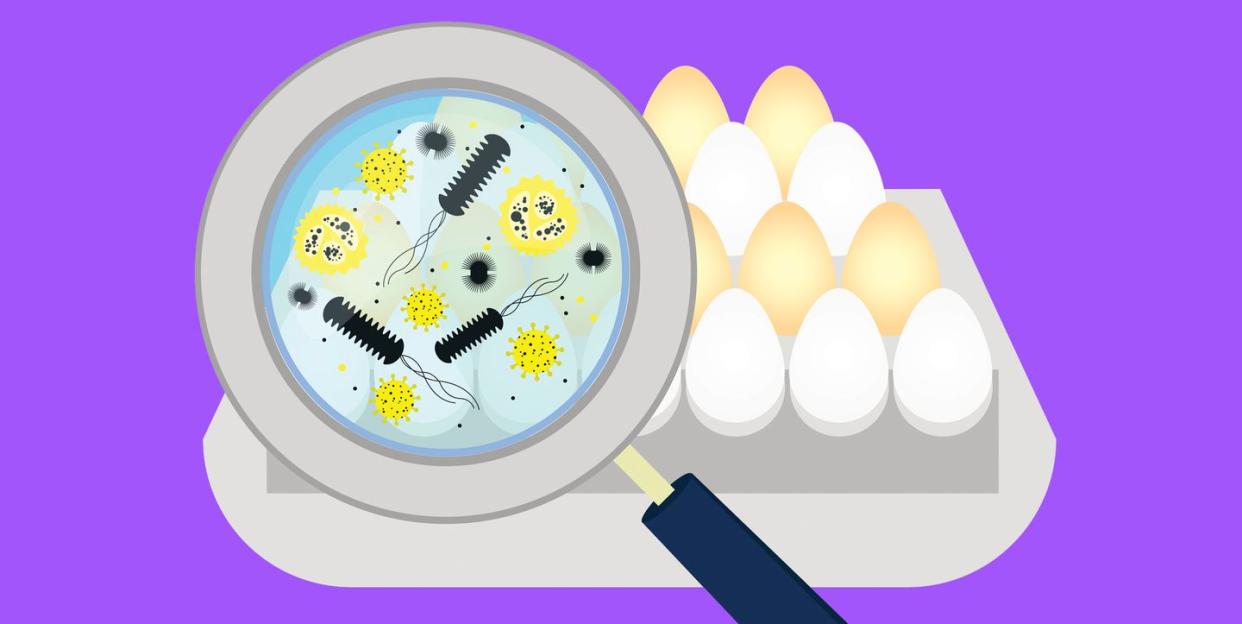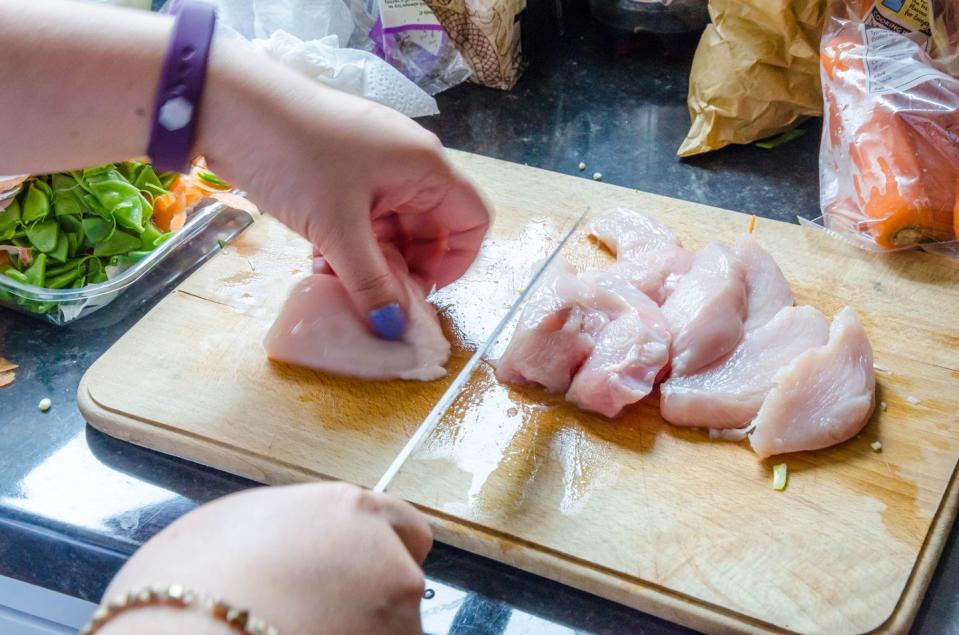7 Signs You Have Food Poisoning—and What Could Have Triggered it

When you find yourself hunched over the toilet, it can feel like your body has seriously betrayed you. But sometimes, this type of purging is a necessary evil: a regulating system to keep your body in tip-top shape from unwanted intruders. A common culprit? Food poisoning.
Roughly one in six Americans-or an estimated 48 million people-will deal with some form of food-borne illness each year, according to the Food and Drug Administration (FDA). Eating a sketchy meal can mean you’ve ingested a goldmine of bacteria, viruses, and parasites that wreak havoc on your system. And it’s not just the type of food that’s to blame-its temperature, the way it was prepared, and how it was stored can all make you sick, too.
But how can you distinguish a funky food disease from other common ailments? Here is everything you need to know about food poisoning and what you can do to start feeling like yourself again.
What are the symptoms of food poisoning?
The food poisoning symptoms you experience will differ depending on what exactly your food was contaminated with, according to the Mayo Clinic-like salmonella or listeria. People who are young, very elderly, have weakened immune systems, or chronic diseases face the highest risk, but anyone can get food poisoning. Expect one or more of these symptoms to pop up a few hours (or even days) after you eat the contaminated food:
Nausea or loss of appetite
Abdominal cramps
Vomiting
Diarrhea (watery or bloody)
Fever
Fatigue
Signs of dehydration (thirst, dry mouth, or lightheadedness)
What are the common causes of food poisoning?
How do you know your newfound friendship with the toilet bowl came from something you ate or some cruel twist of contagious fate? Unfortunately, you can’t tell based on your symptoms alone, but you can get a hunch based on what you’ve been up to and what you've eaten over the past few days.
Your food was not the right temperature

Party staples like pasta salad and deviled eggs happen to be notorious carriers of foodborne illness-the same goes for grilled chicken, and basically anything else billed as perishable, according to Lisa Ganjhu, DO, a gastroenterologist and clinical associate professor of medicine at New York University’s Langone Medical Center. “You need to watch the temperature of your foods and keep hot foods hot and cold foods cold,” says Dr. Ganjhu.
✖️Do better next time: Only keep perishable foods out of the refrigerator for two hours, (one hour if the temperature is 90° or higher), according to the FDA. And if you’re still in doubt (i.e., you don’t know when the host put out the mac salad) just skip it-we promise leaving the party a little hungry will be a far better outcome.
There was only one plate for the chicken-before and after grilling

Even if you cook your meat until it’s completely done (safe internal temperatures are 165° for poultry and 145° for red meats-and yes, a thermometer is necessary), how you handled it post-cooking is important. For instance, loading grilled chicken back onto the same plate it was on when it was raw will put you on the fast track to E. coli hell.
✖️Do better next time: “You also want to use separate cutting boards; don’t cross-contaminate raw meats with vegetables,” says Dr. Ganjhu. Proper storage also matters since bacteria-laden juices from raw meat can drip onto your safe, ready-to-eat foods and contaminate them. Instead of plopping your package of raw chicken (or beef, pork, etc.) directly on the shelf, place them in another sturdier container or plastic bag as well, suggests Dr. Ganjhu.
You drank the water when you shouldn’t have

You have heard it before: “Don’t drink the water in Mexico!” That’s because it has a high risk of bacterial contamination. (Sidenote: It’s not just Mexico. Other underdeveloped areas like parts of Central America, Africa, Asia, and the Middle East are also no-H20 zones.) And it’s not just drinking the contaminated aqua, either. “Avoid salads and other raw fruits and vegetables in countries where the water’s sketchy unless they’re cleaned with filtered water,” says Dr. Ganjhu.
✖️Do better next time: Stock up on probiotics. “Traveling and eating the wrong foods can irritate the gut barrier, and probiotics can reduce that and speed up recovery as well,” says Dr. Ganjhu. (Here are six more reasons to consider a probiotic supplement.)
The leftovers you warmed up were still a bit cold

Even foods that were previously cooked, properly refrigerated, and then warmed up again can make you sick if they’re not appropriately reheated. “The food could have contracted bacteria in the fridge overnight,” says Dr. Ganjhu.
✖️Do better next time: To kill any potential bacteria you still need to microwave pre-cooked food to 165°F or higher. And don’t sidestep the standing time on frozen meal instructions. Their purpose is to add a few extra minutes to the reheating process so the inside of your frozen pot pie can absorb the heat from the outside of it-not to prevent you from burning your mouth.
When should you see a doctor for food poisoning?
Most cases of food poisoning are pretty mild and last just one or two days. Drinking lots of fluids, eating bland foods like toast, getting some rest, and just trying to ride it out can actually help you feel better pretty quickly.
However, if you can’t keep liquids down, see blood in your stool, feel muscle weakness or experience blurry vision, can’t shake a high fever, feel severely dehydrated, or your diarrhea lasts more than three days, it’s time to see your doctor ASAP. In this case, your food poisoning could actually result in further health complications, so you’ll want to seek treatment before it gets any worse.
Your doctor will first get a stool sample to determine what exactly is making you sick. From there, he or she will determine the best course of action, but prescription-strength meds may be needed to rid the toxins from your body.
('You Might Also Like',)

